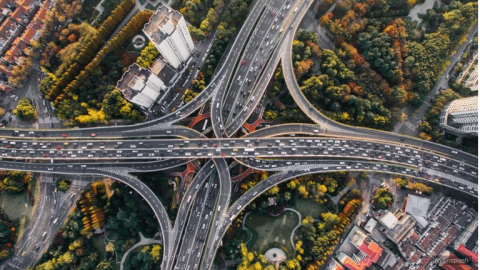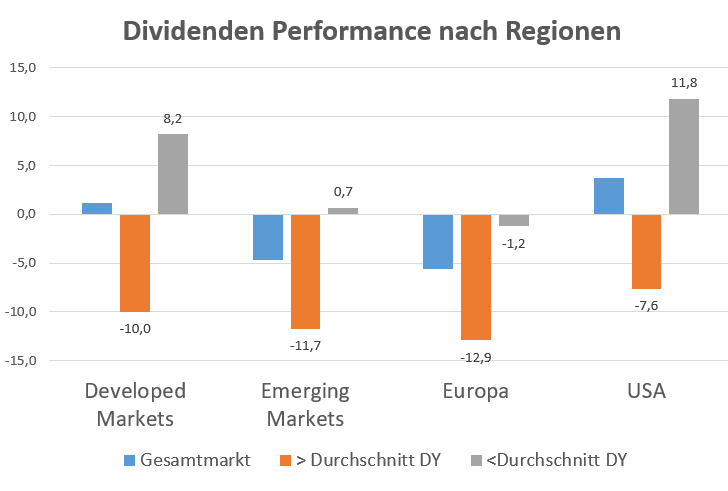The EU wants to be climate-neutral by 2050. Mobility – one of the biggest producers of greenhouse gases – is of particular relevance to this strategy.
Traffic is currently responsible for more than 25% of total CO2 emissions in the EU. Road traffic accounts for 72% thereof, and traffic by air and by water for 14% each. No surprise, then, that the traffic sector holds a central place in the European Green Deal and that it has been given the working title “Sustainable Mobility”. In order to achieve the EU’s goal of becoming the first climate-neutral continent, the greenhouse emissions of the traffic sector should be cut by up to 90% by the year 2050 relative to 1990.
Freight traffic is to be moved from roads and air largely to rail and ships. Subsidies for fossil fuels are to be abolished, and there are plans for the CO2 emissions trade to be expanded from road to sea traffic.
Above all, the supply of sustainable alternative fuels is to be increased drastically. This means specifically that by 2025 1 million charging stations are to be set up so as to speed up the penetration of electric vehicles. As explained in our ESG Letter on Mobility, the emissions of electric cars is up to 87% lower than that of combustion engines, depending on the electricity mix.
Electric cars only second-best option
Despite these positive numbers one has to bear in mind that from an environmental perspective, electric cars are still only the second-best solution in motorised traffic: the emissions of public transport are still clearly below that of even the cleanest electric vehicles.
According to a study by the German Federal Environmental Agency, buses and trains represent by far the most environmentally friendly means of transport both in local and in long-distance traffic. Only walking or bicycles are cleaner.
The eco-balance of buses could be improved further if they were fitted with electric or hydrogen engines as opposed to, as is currently the case, diesel engines. China has realised that and is yet again way ahead of the rest of the world when it comes to environmental technologies.
For example, the entire public bus network of Shenzhen, a city with a population of 13 million, was electrified within four years. The total share of electric buses in China is now at 17%, which compares to a mere 0.2% in Europe. In a study, the consulting firm SCI Verkehr expects the European market for electric buses to increase by 40% by the year 2023; the study also suggests that about 12% of all buses newly registered in Europe will by electric.
An entire bus fleet of sustainability
The Swedish company Nobina is building on this trend. Nobina transports one million passengers in Scandinavia in 3,700 buses every day, putting sustainability in the centre of its corporate philosophy.
The company will likely achieve its 2030 goal of operating 100% of its bus fleet with renewable fuels much earlier than planned. In 2019, renewable fuels already accounted for 82%. In addition, Nobina has also set itself ambitious targets for the use of other resources. 85% of the water used to clean the buses is to be recycled by 2023 at the latest.
Also, the company constantly develops new approaches aimed at improving its bus fleet, for example “Ecodriving”. All drivers are trained to drive economically and in doing so, are supported by the “The Green Journey App”, a software developed in-house. This app provides the drivers with feedback about their performance.
This way, the drivers can adjust their speed to the current traffic situation as well as traffic lights so as to avoid unnecessary braking and acceleration. This has led to a drastic reduction in fuel consumption.
Autonomous minibuses that can be called on demand per app are another interesting topic. This concept allows for increased efficiency especially in rural areas relative to a rigid timetable.
To us, Nobina is one of the most interesting and innovative companies in the area of public traffic. It is one of the top holdings of ERSTE WWF STOCK ENVIROMENT in the field of mobility.
INFO:
ERSTE WWF STOCK ENVIROMENT invests worldwide especially in companies from the area of environmental technologies. The investment process is based on fundamental company research. In the selection process, we focus on companies especially in the areas of water treatment and supply, recycling and waste management, renewable energy, energy efficiency, and mobility.
Legal note:
Prognoses are no reliable indicator for future performance.
Legal disclaimer
This document is an advertisement. Unless indicated otherwise, source: Erste Asset Management GmbH. The language of communication of the sales offices is German and the languages of communication of the Management Company also include English.
The prospectus for UCITS funds (including any amendments) is prepared and published in accordance with the provisions of the InvFG 2011 as amended. Information for Investors pursuant to § 21 AIFMG is prepared for the alternative investment funds (AIF) administered by Erste Asset Management GmbH pursuant to the provisions of the AIFMG in conjunction with the InvFG 2011.
The currently valid versions of the prospectus, the Information for Investors pursuant to § 21 AIFMG, and the key information document can be found on the website www.erste-am.com under “Mandatory publications” and can be obtained free of charge by interested investors at the offices of the Management Company and at the offices of the depositary bank. The exact date of the most recent publication of the prospectus, the languages in which the fund prospectus or the Information for Investors pursuant to Art 21 AIFMG and the key information document are available, and any other locations where the documents can be obtained are indicated on the website www.erste-am.com. A summary of the investor rights is available in German and English on the website www.erste-am.com/investor-rights and can also be obtained from the Management Company.
The Management Company can decide to suspend the provisions it has taken for the sale of unit certificates in other countries in accordance with the regulatory requirements.
Note: You are about to purchase a product that may be difficult to understand. We recommend that you read the indicated fund documents before making an investment decision. In addition to the locations listed above, you can obtain these documents free of charge at the offices of the referring Sparkassen bank and the offices of Erste Bank der oesterreichischen Sparkassen AG. You can also access these documents electronically at www.erste-am.com.
Our analyses and conclusions are general in nature and do not take into account the individual characteristics of our investors in terms of earnings, taxation, experience and knowledge, investment objective, financial position, capacity for loss, and risk tolerance. Past performance is not a reliable indicator of the future performance of a fund.
Please note: Investments in securities entail risks in addition to the opportunities presented here. The value of units and their earnings can rise and fall. Changes in exchange rates can also have a positive or negative effect on the value of an investment. For this reason, you may receive less than your originally invested amount when you redeem your units. Persons who are interested in purchasing units in investment funds are advised to read the current fund prospectus(es) and the Information for Investors pursuant to § 21 AIFMG, especially the risk notices they contain, before making an investment decision. If the fund currency is different than the investor’s home currency, changes in the relevant exchange rate can positively or negatively influence the value of the investment and the amount of the costs associated with the fund in the home currency.
We are not permitted to directly or indirectly offer, sell, transfer, or deliver this financial product to natural or legal persons whose place of residence or domicile is located in a country where this is legally prohibited. In this case, we may not provide any product information, either.
Please consult the corresponding information in the fund prospectus and the Information for Investors pursuant to § 21 AIFMG for restrictions on the sale of the fund to American or Russian citizens.
It is expressly noted that this communication does not provide any investment recommendations, but only expresses our current market assessment. Thus, this communication is not a substitute for investment advice.
This document does not represent a sales activity of the Management Company and therefore may not be construed as an offer for the purchase or sale of financial or investment instruments.
Erste Asset Management GmbH is affiliated with the Erste Bank and austrian Sparkassen banks.
Please also read the “Information about us and our securities services” published by your bank.


